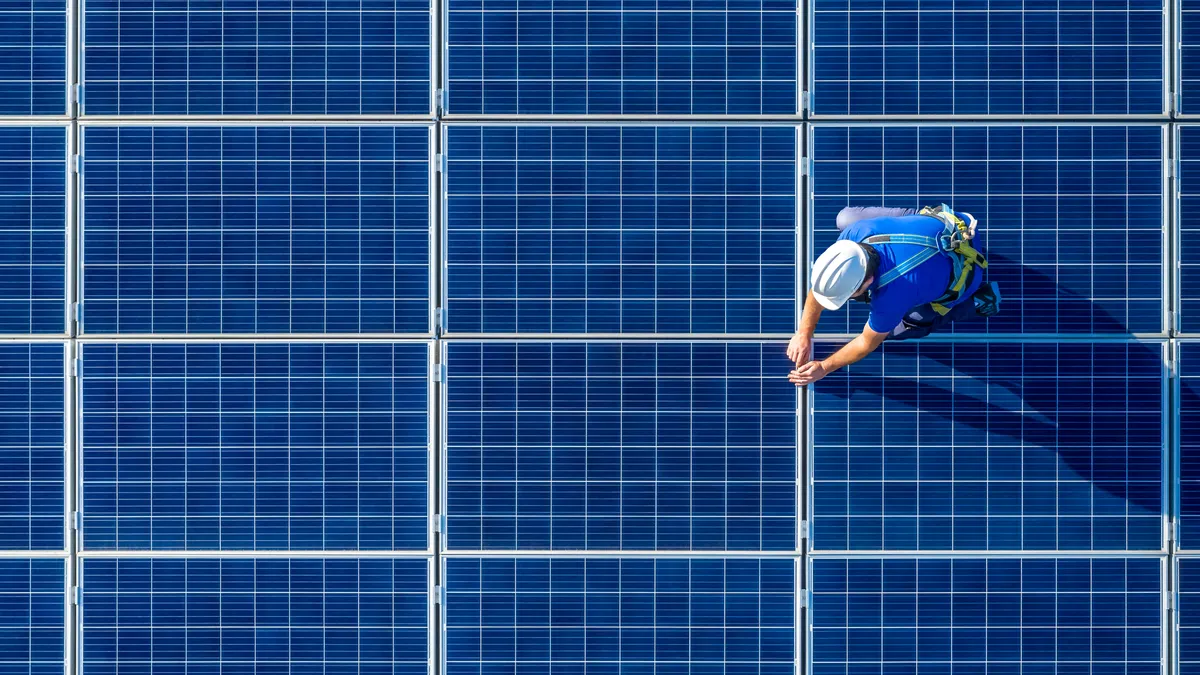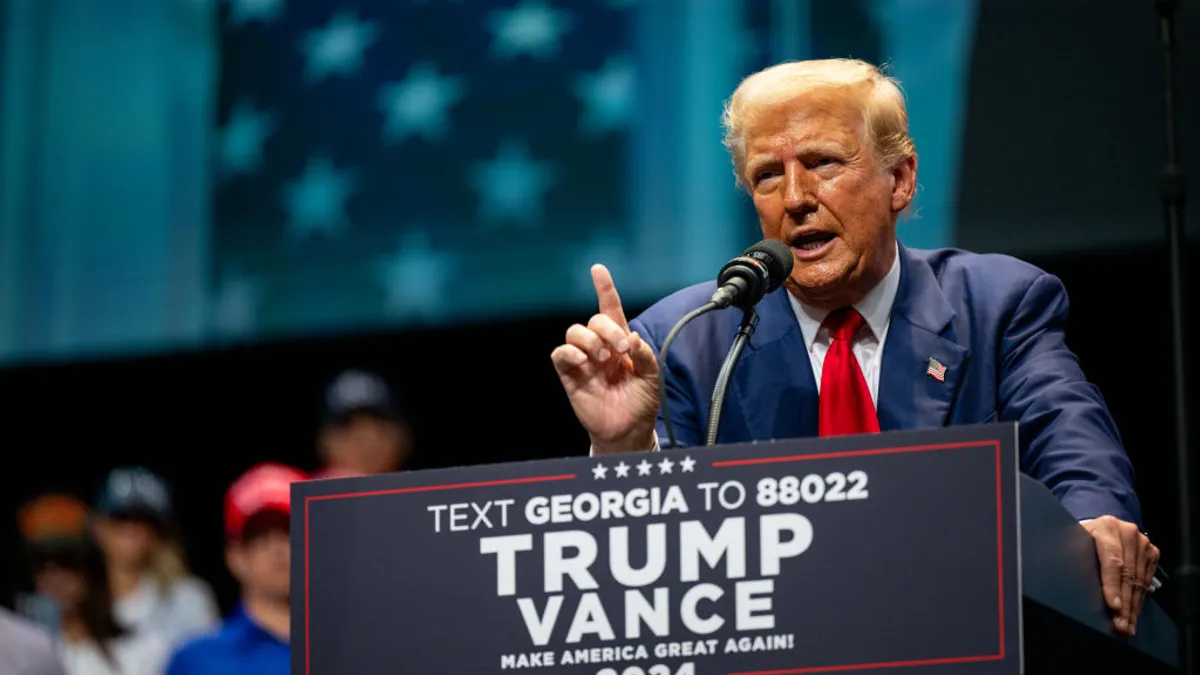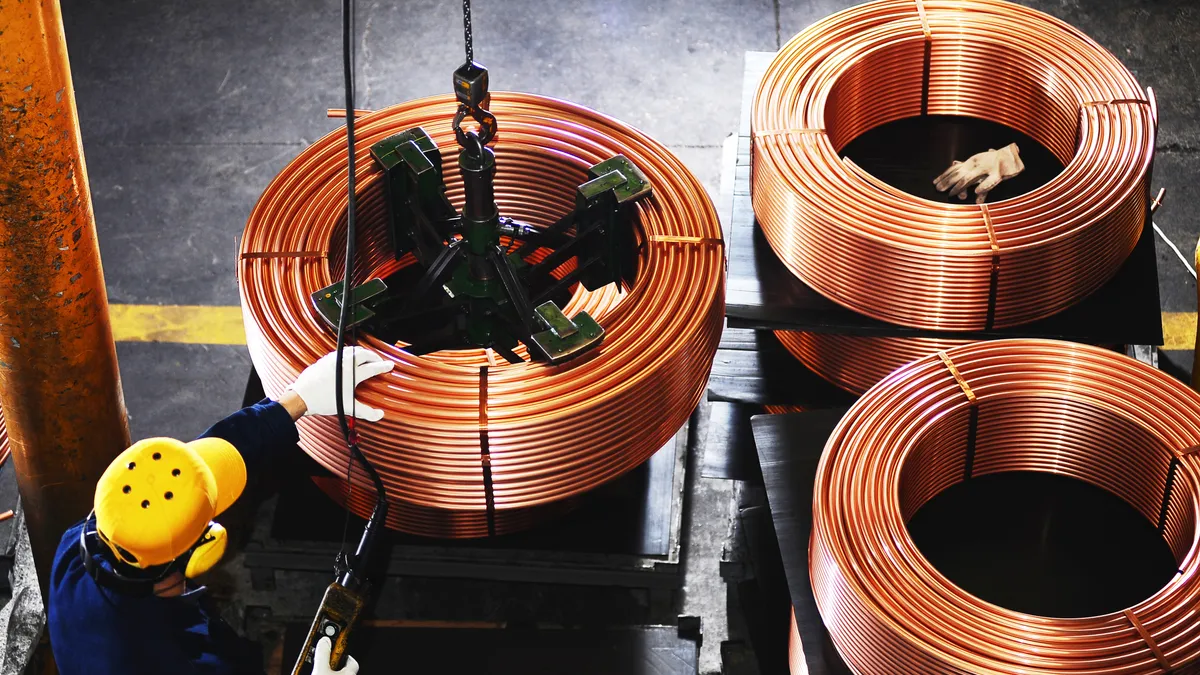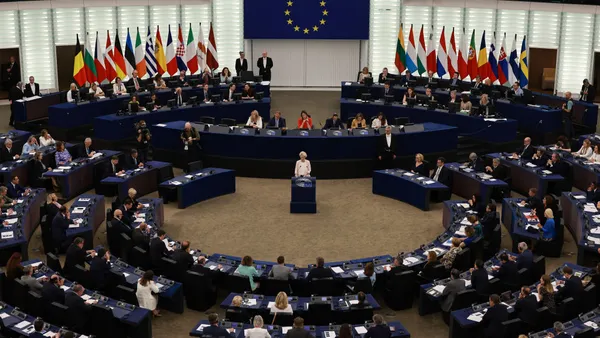The U.S. International Trade Commission voted Friday to allow a petition seeking new antidumping and countervailing duties on some solar cell imports to move forward, giving the petitioners a positive preliminary injury determination.
The petition was filed in April by an alliance of seven U.S. solar manufacturers, including First Solar and QCells, and asks the U.S. to impose antidumping and countervailing duties, or AD/CVD, on crystalline silicon solar cells imported from Cambodia, Malaysia, Thailand and Vietnam.
The purpose of the ITC’s vote was to determine “if there's a reasonable indication that the domestic industry is injured due to the dumped and subsidized imports from the four countries,” according to Wiley Rein partner Tim Brightbill, who is representing the petitioners in this case.
In a Friday statement, Brightbill said the alliance behind the petition commends the ITC for its affirmative finding and “[looks] forward to the U.S. Department of Commerce moving ahead on its important investigations of dumping and subsidies by all four countries.”
“The preliminary investigations provided substantial and detailed evidence of these four countries engaging in illegal dumping and subsidizing of solar cells and modules, which is harming our companies and American workers and causing injury as well as creating tremendous volatility and cost uncertainty in the U.S. domestic solar market,” Brightbill said.
The Department of Commerce had opted to initiate new AC/CVD investigations in May, and Brightbill said it was “notable that Commerce agreed to look into almost all of the subsidies that we alleged in the four countries.”
Last August, Commerce had found that companies that imported solar panels from the four Southeast Asian countries in question circumvented tariffs on Chinese-made components. The initiation of that case — and resulting concerns over impacts to the domestic solar supply chain — resulted in President Joe Biden issuing a two-year moratorium on associated new import duties. That moratorium expired Thursday, clearing the way for possible new duties.
The concerns that prompted the moratorium have been raised again regarding the new petition. Clean energy groups Advanced Energy United, the American Council on Renewable Energy, the Solar Energy Industries Association and the American Clean Power Association issued a joint statement in April criticizing the petition for “[creating] market uncertainty” and posing a “potential threat” to the domestic solar supply chain.
And during a May ITC hearing, several attorneys representing U.S. solar companies spoke in opposition to the petition. “Where precisely are the material injury and threat? They don't exist,” said Illuminate USA attorney Alex Schaefer.
The petition “aims to stifle its U.S. competition,” said Jonathan Stoel, the attorney representing Canadian Solar. “They're trying to harm their U.S. competition, not to harm competition with Southeast Asia. Why else would this target imports of solar cells from Southeast Asia, a vital component to U.S. manufacturing, and leave untouched enormous quantities of solar cells and module imports from Korea?”













